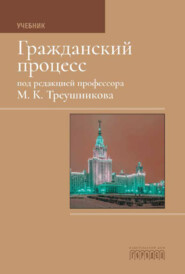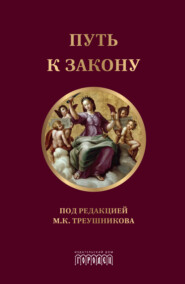По всем вопросам обращайтесь на: info@litportal.ru
(©) 2003-2024.
✖
The German Classics of the Nineteenth and Twentieth Centuries, Volume 04
Настройки чтения
Размер шрифта
Высота строк
Поля
"Noble woman, I thank you. I can readily imagine you with the strange bird, and how you fed the little Strohmi."
Without answering she left the room. Walther also lay down to sleep, but Eckbert continued to walk up and down the room.
"Aren't human beings fools?" he finally asked himself. "I myself induced my wife to tell her story, and now I regret this confidence! Will he not perhaps misuse it? Will he not impart it to others? Will he not perhaps—for it is human nature—come to feel a miserable longing for our gems and devise plans to get them and dissemble his nature?"
It occurred to him that Walther had not taken leave of him as cordially as would perhaps have been natural after so confidential a talk. When the soul is once led to suspect, it finds confirmations of its suspicions in every little thing. Then again Eckbert reproached himself for his ignoble distrust of his loyal friend, but he was unable to get the notion entirely out of his mind. All night long he tossed about with these thoughts and slept but little.
Bertha was sick and could not appear for breakfast. Walther seemed little concerned about it, and furthermore he left the knight in a rather indifferent manner. Eckbert could not understand his conduct. He went in to see his wife—she lay in a severe fever and said that her story the night before must have excited her in this manner.
After that evening Walther visited his friend's castle but rarely, and even when he did come he went away again after a few trivial words. Eckbert was exceedingly troubled by this behavior; to be sure, he tried not to let either Bertha or Walther notice it, but both of them must surely have been aware of his inward uneasiness.
Bertha's sickness grew worse and worse. The doctor shook his head—the color in her cheeks had disappeared, and her eyes became more and more brilliant.
One morning she summoned her husband to her bedside and told the maids to withdraw.
"Dear husband," she began, "I must disclose to you something which has almost deprived me of my reason and has ruined my health, however trivial it may seem to be. Often as I have told my story to you, you will remember that I have never been able, despite all the efforts I have made, to recall the name of the little dog with which I lived so long. That evening when I told the story to Walther he suddenly said to me when we separated: 'I can readily imagine how you fed the little Strohmi.' Was that an accident? Did he guess the name, or did he mention it designedly? And what, then, is this man's connection with my lot? The idea has occurred to me now and then that I merely imagine this accident—but it is certain, only too certain. It sent a feeling of horror through me to have a strange person like that assist my memory. What do you say, Eckbert?"
Eckbert looked at his suffering wife with deep tenderness. He kept silent, but was meditating. Then he said a few comforting words to her and left the room. In an isolated room he walked back and forth with indescribable restlessness—Walther for many years had been his sole male comrade, and yet this man was now the only person in the world whose existence oppressed and harassed him. It seemed to him that his heart would be light and happy if only this one person might be put out of the way. He took down his cross-bow with a view to distracting his thoughts by going hunting.
It was a raw and stormy day in the winter; deep snow lay on the mountains and bent down the branches of the trees. He wandered about, with the sweat oozing from his forehead. He came across no game, and that increased his ill-humor. Suddenly he saw something move in the distance—it was Walther gathering moss from the trees. Without knowing what he was doing he took aim—Walther looked around and motioned to him with a threatening gesture. But as he did so the arrow sped, and Walther fell headlong.
Eckbert felt relieved and calm, and yet a feeling of horror drove him back to his castle. He had a long distance to go, for he had wandered far into the forest. When he arrived home, Bertha had already died—before her death she had spoken a great deal about Walther and the old woman.
For a long time Eckbert lived in greatest seclusion. He had always been somewhat melancholy because the strange story of his wife rather worried him; he had always lived in fear of an unfortunate event that might take place, but now he was completely at variance with himself. The murder of his friend stood constantly before his eyes—he spent his life reproaching himself.
In order to divert his thoughts, he occasionally betook himself to the nearest large city, where he attended parties and banquets. He wished to have a friend to fill the vacancy in his soul, and then again, when he thought of Walther, the very word friend made him shudder. He was convinced that he would necessarily be unhappy with all his friends. He had lived so long in beautiful harmony with Bertha, and Walther's friendship had made him happy for so many years, and now both of them had been so suddenly taken from him that his life seemed at times more like a strange fairy-tale than an actual mortal existence.
A knight, Hugo von Wolfsberg, became attached to the quiet, melancholy Eckbert, and seemed to cherish a genuine fondness for him. Eckbert was strangely surprised; he met the knight's friendly advances more quickly than the other expected. They were now frequently together, the stranger did Eckbert all sorts of favors, scarcely ever did either of them ride out without the other, they met each other at all the parties—in short, they seemed to be inseparable.
Eckbert was, nevertheless, happy only for short moments at a time, for he felt quite sure that Hugo loved him only by mistake—he did not know him, nor his history, and he felt the same impulse again to unfold his soul to him in order to ascertain for sure how staunch a friend Hugo was. Then again doubts and the fear of being detested restrained him. There were many hours in which he felt so convinced of his own unworthiness as to believe that no person, who knew him at all intimately, could hold him worthy of esteem. But he could not resist the impulse; in the course of a long walk he revealed his entire history to his friend, and asked him if he could possibly love a murderer. Hugo was touched and tried to comfort him. Eckbert followed him back to the city with a lighter heart.
However, it seemed to be his damnation that his suspicions should awaken just at the time when he grew confidential; for they had no more than entered the hall when the glow of the many lights revealed an expression in his friend's features which he did not like. He thought he detected a malicious smile, and it seemed to him that he, Hugo, said very little to him, that he talked a great deal with the other people present, and seemed to pay absolutely no attention to him. There was an old knight in the company who had always shown himself as Eckbert's rival, and had often inquired in a peculiar way about his riches and his wife. Hugo now approached this man, and they talked together a long time secretly, while every now and then they glanced toward Eckbert. He, Eckbert, saw in this a confirmation of his suspicions; he believed that he had been betrayed, and a terrible rage overcame him. As he continued to stare in that direction, he suddenly saw Walther's head, all his features, and his entire figure, so familiar to him. Still looking, he became convinced that it was nobody but Walther himself who was talking with the old man. His terror was indescribable; completely beside himself, he rushed out, left the city that night, and, after losing his way many times, returned to his castle.
Like a restless spirit he hurried from room to room. No thought could he hold fast; the pictures in his mind grew more and more terrible, and he did not sleep a wink. The idea often occurred to him that he was crazy and that all these notions were merely the product of his own imagination. Then again he remembered Walther's features, and it was all more puzzling to him than ever. He resolved to go on a journey in order to compose his thoughts; he had long since given up the idea of a friend and the wish for a companion.
Without any definite destination in view, he set out, nor did he pay much attention to the country that lay before him. After he had trotted along several days on his horse, he suddenly lost his way in a maze of rocks, from which he was unable to discover any egress. Finally he met an old peasant who showed him a way out, leading past a water-fall. He started to give him a few coins by way of thanks, but the peasant refused them.
"What can it mean?" he said to himself. "I could easily imagine that that man was no other than Walther." He looked back once more—it was indeed no one else but Walther!
Eckbert spurred on his horse as fast as it could run—through meadows and forests, until, completely exhausted, it collapsed beneath him. Unconcerned, he continued his journey on foot.
Dreamily he ascended a hill. There he seemed to hear a dog barking cheerily close by—birch trees rustled about him—he heard the notes of a wonderful song:
O solitude
Of lonely wood,
Thou chiefest good,
Where thou dost brood
Is joy renewed,
O solitude!
Now it was all up with Eckbert's consciousness and his senses; he could not solve the mystery whether he was now dreaming or had formerly dreamt of a woman Bertha. The most marvelous was confused with the most ordinary—the world around him was bewitched—no thought, no memory was under his control.
An old crook-backed woman with a cane came creeping up the hill, coughing.
"Are you bringing my bird, my pearls, my dog?" she cried out to him. "Look—wrong punishes itself. I and no other was your friend Walther, your Hugo."
"God in Heaven!" said Eckbert softly to himself. "In what terrible solitude I have spent my life."
"And Bertha was your sister."
Eckbert fell to the ground.
"Why did she desert me so deceitfully? Otherwise everything would have ended beautifully—her probation-time was already over. She was the daughter of a knight, who had a shepherd bring her up—the daughter of your father."
"Why have I always had a presentiment of these facts?" cried Eckbert.
"Because in your early youth you heard your father tell of them. On his wife's account he could not bring up this daughter himself, for she was the child of another woman."
Eckbert was delirious as he breathed his last; dazed and confused he heard the old woman talking, the dog barking, and the bird repeating its song.
THE ELVES[37 - Permission Porter & Coates, Philadelphia.] (1811)
By LUDWIG TIECK
TRANSLATED BY FREDERIC H. HEDGE
"Where is our little Mary?" asked the father.
"She is playing out upon the green there, with our neighbor's boy," replied the mother.
"I wish they may not run away and lose themselves," said he; "they are so heedless."
The mother looked for the little ones, and brought them their evening luncheon. "It is warm," said the boy; and Mary eagerly reached out for the red cherries.
"Have a care, children," said the mother, "and do not run too far from home, or into the wood; father and I are going to the fields."
Little Andrew answered: "Never fear, the wood frightens us; we shall sit here by the house, where there are people near us."
The mother went in, and soon came out again with her husband. They locked the door, and turned toward the fields to look after their laborers and see their hay-harvest in the meadow. Their house lay upon a little green height, encircled by a pretty ring of paling, which likewise inclosed their fruit and flower-garden. The hamlet stretched somewhat deeper down, and on the other side lay the castle of the Count. Martin rented the large farm from this nobleman, and was living in contentment with his wife and only child; for he yearly saved some money, and had the prospect of becoming a man of substance by his industry, for the ground was productive, and the Count not illiberal.
As he walked with his wife to the fields, he gazed cheerfully round, and said: "What a different look this quarter has, Brigitta, from the place we lived in formerly! Here it is all so green; the whole village is bedecked with thick-spreading fruit-trees; the ground is full of beautiful herbs and flowers; all the houses are cheerful and cleanly, the inhabitants are at their ease: nay, I could almost fancy that the woods are greener here than elsewhere, and the sky bluer; and, so far as the eye can reach, you have pleasure and delight in beholding the bountiful Earth."
"And whenever you cross the stream," said Brigitta, "you are, as it were, in another world, all is so dreary and withered; but every traveler declares that our village is the fairest in the country, far or near."
"All but that fir-ground," said her husband; "do but look back to it, how dark and dismal that solitary spot is lying in the gay scene—the dingy fir-trees, with the smoky huts behind them, the ruined stalls, the brook flowing past with a sluggish melancholy."
"It is true," replied Brigitta; "if you but approach that spot, you grow disconsolate and sad, you know not why. What sort of people can they be that live there, and keep themselves so separate from the rest of us, as if they had an evil conscience?"
"A miserable crew," replied the young farmer; "gipsies, seemingly, that steal and cheat in other quarters, and have their hoard and hiding-place here. I wonder only that his lordship suffers them."
Without answering she left the room. Walther also lay down to sleep, but Eckbert continued to walk up and down the room.
"Aren't human beings fools?" he finally asked himself. "I myself induced my wife to tell her story, and now I regret this confidence! Will he not perhaps misuse it? Will he not impart it to others? Will he not perhaps—for it is human nature—come to feel a miserable longing for our gems and devise plans to get them and dissemble his nature?"
It occurred to him that Walther had not taken leave of him as cordially as would perhaps have been natural after so confidential a talk. When the soul is once led to suspect, it finds confirmations of its suspicions in every little thing. Then again Eckbert reproached himself for his ignoble distrust of his loyal friend, but he was unable to get the notion entirely out of his mind. All night long he tossed about with these thoughts and slept but little.
Bertha was sick and could not appear for breakfast. Walther seemed little concerned about it, and furthermore he left the knight in a rather indifferent manner. Eckbert could not understand his conduct. He went in to see his wife—she lay in a severe fever and said that her story the night before must have excited her in this manner.
After that evening Walther visited his friend's castle but rarely, and even when he did come he went away again after a few trivial words. Eckbert was exceedingly troubled by this behavior; to be sure, he tried not to let either Bertha or Walther notice it, but both of them must surely have been aware of his inward uneasiness.
Bertha's sickness grew worse and worse. The doctor shook his head—the color in her cheeks had disappeared, and her eyes became more and more brilliant.
One morning she summoned her husband to her bedside and told the maids to withdraw.
"Dear husband," she began, "I must disclose to you something which has almost deprived me of my reason and has ruined my health, however trivial it may seem to be. Often as I have told my story to you, you will remember that I have never been able, despite all the efforts I have made, to recall the name of the little dog with which I lived so long. That evening when I told the story to Walther he suddenly said to me when we separated: 'I can readily imagine how you fed the little Strohmi.' Was that an accident? Did he guess the name, or did he mention it designedly? And what, then, is this man's connection with my lot? The idea has occurred to me now and then that I merely imagine this accident—but it is certain, only too certain. It sent a feeling of horror through me to have a strange person like that assist my memory. What do you say, Eckbert?"
Eckbert looked at his suffering wife with deep tenderness. He kept silent, but was meditating. Then he said a few comforting words to her and left the room. In an isolated room he walked back and forth with indescribable restlessness—Walther for many years had been his sole male comrade, and yet this man was now the only person in the world whose existence oppressed and harassed him. It seemed to him that his heart would be light and happy if only this one person might be put out of the way. He took down his cross-bow with a view to distracting his thoughts by going hunting.
It was a raw and stormy day in the winter; deep snow lay on the mountains and bent down the branches of the trees. He wandered about, with the sweat oozing from his forehead. He came across no game, and that increased his ill-humor. Suddenly he saw something move in the distance—it was Walther gathering moss from the trees. Without knowing what he was doing he took aim—Walther looked around and motioned to him with a threatening gesture. But as he did so the arrow sped, and Walther fell headlong.
Eckbert felt relieved and calm, and yet a feeling of horror drove him back to his castle. He had a long distance to go, for he had wandered far into the forest. When he arrived home, Bertha had already died—before her death she had spoken a great deal about Walther and the old woman.
For a long time Eckbert lived in greatest seclusion. He had always been somewhat melancholy because the strange story of his wife rather worried him; he had always lived in fear of an unfortunate event that might take place, but now he was completely at variance with himself. The murder of his friend stood constantly before his eyes—he spent his life reproaching himself.
In order to divert his thoughts, he occasionally betook himself to the nearest large city, where he attended parties and banquets. He wished to have a friend to fill the vacancy in his soul, and then again, when he thought of Walther, the very word friend made him shudder. He was convinced that he would necessarily be unhappy with all his friends. He had lived so long in beautiful harmony with Bertha, and Walther's friendship had made him happy for so many years, and now both of them had been so suddenly taken from him that his life seemed at times more like a strange fairy-tale than an actual mortal existence.
A knight, Hugo von Wolfsberg, became attached to the quiet, melancholy Eckbert, and seemed to cherish a genuine fondness for him. Eckbert was strangely surprised; he met the knight's friendly advances more quickly than the other expected. They were now frequently together, the stranger did Eckbert all sorts of favors, scarcely ever did either of them ride out without the other, they met each other at all the parties—in short, they seemed to be inseparable.
Eckbert was, nevertheless, happy only for short moments at a time, for he felt quite sure that Hugo loved him only by mistake—he did not know him, nor his history, and he felt the same impulse again to unfold his soul to him in order to ascertain for sure how staunch a friend Hugo was. Then again doubts and the fear of being detested restrained him. There were many hours in which he felt so convinced of his own unworthiness as to believe that no person, who knew him at all intimately, could hold him worthy of esteem. But he could not resist the impulse; in the course of a long walk he revealed his entire history to his friend, and asked him if he could possibly love a murderer. Hugo was touched and tried to comfort him. Eckbert followed him back to the city with a lighter heart.
However, it seemed to be his damnation that his suspicions should awaken just at the time when he grew confidential; for they had no more than entered the hall when the glow of the many lights revealed an expression in his friend's features which he did not like. He thought he detected a malicious smile, and it seemed to him that he, Hugo, said very little to him, that he talked a great deal with the other people present, and seemed to pay absolutely no attention to him. There was an old knight in the company who had always shown himself as Eckbert's rival, and had often inquired in a peculiar way about his riches and his wife. Hugo now approached this man, and they talked together a long time secretly, while every now and then they glanced toward Eckbert. He, Eckbert, saw in this a confirmation of his suspicions; he believed that he had been betrayed, and a terrible rage overcame him. As he continued to stare in that direction, he suddenly saw Walther's head, all his features, and his entire figure, so familiar to him. Still looking, he became convinced that it was nobody but Walther himself who was talking with the old man. His terror was indescribable; completely beside himself, he rushed out, left the city that night, and, after losing his way many times, returned to his castle.
Like a restless spirit he hurried from room to room. No thought could he hold fast; the pictures in his mind grew more and more terrible, and he did not sleep a wink. The idea often occurred to him that he was crazy and that all these notions were merely the product of his own imagination. Then again he remembered Walther's features, and it was all more puzzling to him than ever. He resolved to go on a journey in order to compose his thoughts; he had long since given up the idea of a friend and the wish for a companion.
Without any definite destination in view, he set out, nor did he pay much attention to the country that lay before him. After he had trotted along several days on his horse, he suddenly lost his way in a maze of rocks, from which he was unable to discover any egress. Finally he met an old peasant who showed him a way out, leading past a water-fall. He started to give him a few coins by way of thanks, but the peasant refused them.
"What can it mean?" he said to himself. "I could easily imagine that that man was no other than Walther." He looked back once more—it was indeed no one else but Walther!
Eckbert spurred on his horse as fast as it could run—through meadows and forests, until, completely exhausted, it collapsed beneath him. Unconcerned, he continued his journey on foot.
Dreamily he ascended a hill. There he seemed to hear a dog barking cheerily close by—birch trees rustled about him—he heard the notes of a wonderful song:
O solitude
Of lonely wood,
Thou chiefest good,
Where thou dost brood
Is joy renewed,
O solitude!
Now it was all up with Eckbert's consciousness and his senses; he could not solve the mystery whether he was now dreaming or had formerly dreamt of a woman Bertha. The most marvelous was confused with the most ordinary—the world around him was bewitched—no thought, no memory was under his control.
An old crook-backed woman with a cane came creeping up the hill, coughing.
"Are you bringing my bird, my pearls, my dog?" she cried out to him. "Look—wrong punishes itself. I and no other was your friend Walther, your Hugo."
"God in Heaven!" said Eckbert softly to himself. "In what terrible solitude I have spent my life."
"And Bertha was your sister."
Eckbert fell to the ground.
"Why did she desert me so deceitfully? Otherwise everything would have ended beautifully—her probation-time was already over. She was the daughter of a knight, who had a shepherd bring her up—the daughter of your father."
"Why have I always had a presentiment of these facts?" cried Eckbert.
"Because in your early youth you heard your father tell of them. On his wife's account he could not bring up this daughter himself, for she was the child of another woman."
Eckbert was delirious as he breathed his last; dazed and confused he heard the old woman talking, the dog barking, and the bird repeating its song.
THE ELVES[37 - Permission Porter & Coates, Philadelphia.] (1811)
By LUDWIG TIECK
TRANSLATED BY FREDERIC H. HEDGE
"Where is our little Mary?" asked the father.
"She is playing out upon the green there, with our neighbor's boy," replied the mother.
"I wish they may not run away and lose themselves," said he; "they are so heedless."
The mother looked for the little ones, and brought them their evening luncheon. "It is warm," said the boy; and Mary eagerly reached out for the red cherries.
"Have a care, children," said the mother, "and do not run too far from home, or into the wood; father and I are going to the fields."
Little Andrew answered: "Never fear, the wood frightens us; we shall sit here by the house, where there are people near us."
The mother went in, and soon came out again with her husband. They locked the door, and turned toward the fields to look after their laborers and see their hay-harvest in the meadow. Their house lay upon a little green height, encircled by a pretty ring of paling, which likewise inclosed their fruit and flower-garden. The hamlet stretched somewhat deeper down, and on the other side lay the castle of the Count. Martin rented the large farm from this nobleman, and was living in contentment with his wife and only child; for he yearly saved some money, and had the prospect of becoming a man of substance by his industry, for the ground was productive, and the Count not illiberal.
As he walked with his wife to the fields, he gazed cheerfully round, and said: "What a different look this quarter has, Brigitta, from the place we lived in formerly! Here it is all so green; the whole village is bedecked with thick-spreading fruit-trees; the ground is full of beautiful herbs and flowers; all the houses are cheerful and cleanly, the inhabitants are at their ease: nay, I could almost fancy that the woods are greener here than elsewhere, and the sky bluer; and, so far as the eye can reach, you have pleasure and delight in beholding the bountiful Earth."
"And whenever you cross the stream," said Brigitta, "you are, as it were, in another world, all is so dreary and withered; but every traveler declares that our village is the fairest in the country, far or near."
"All but that fir-ground," said her husband; "do but look back to it, how dark and dismal that solitary spot is lying in the gay scene—the dingy fir-trees, with the smoky huts behind them, the ruined stalls, the brook flowing past with a sluggish melancholy."
"It is true," replied Brigitta; "if you but approach that spot, you grow disconsolate and sad, you know not why. What sort of people can they be that live there, and keep themselves so separate from the rest of us, as if they had an evil conscience?"
"A miserable crew," replied the young farmer; "gipsies, seemingly, that steal and cheat in other quarters, and have their hoard and hiding-place here. I wonder only that his lordship suffers them."

















